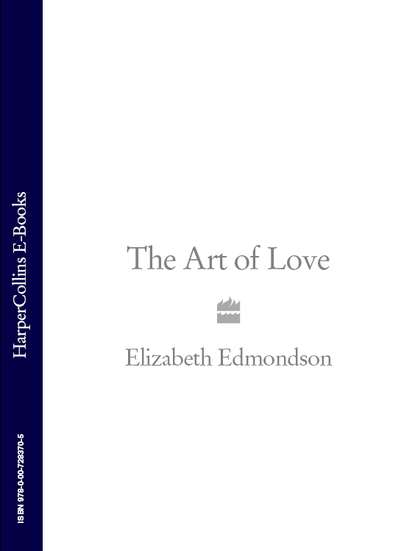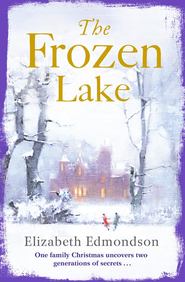По всем вопросам обращайтесь на: info@litportal.ru
(©) 2003-2024.
✖
The Art of Love
Автор
Год написания книги
2018
Настройки чтения
Размер шрифта
Высота строк
Поля
‘I grew up surrounded by paintings and works of art,’ he explained. ‘My father is a collector, and very knowledgeable. He’s always been interested in the artists of the day as much as in past masters, and so I follow in his footsteps.’
Polly disagreed with Oliver about the work of several painters, and the argument was continued over supper at Bertorelli’s, the restaurant that was to become their favourite eating place.
Polly had taken an immediate liking to Oliver. ‘We are snip and snap,’ she explained to Fanny. ‘Oh, it’s not sex, although I suppose…No, it really isn’t. Affinity, that’s the word.’
‘A strange affinity,’ Fanny said drily. ‘Polly Smith and the Hon. Oliver.’
‘Hon.?’
‘His father’s a lord. Didn’t he tell you?’
Polly pondered on this piece of information. Did it make a difference? No, Oliver was Oliver. Of course he had another life, far removed from the impecunious day-to-day existence of artists like herself. Yet he was, in his way, one of them. ‘He’s a friend,’ she told Fanny. ‘We like one another’s company. Our minds are in harmony. That’s enough for me, his being an Hon. is neither here nor there.’
A man in a dark coat said, ‘Excuse me,’ in affronted tones, as though Polly were standing there with the express intention of keeping him from his tobacco, and she moved out of the way, back into the full force of the wind and the rain.
She made up her mind. She would go back to Highgate, and consult Ma about the passport photograph. Maybe she could suggest who could sign it for her.
Dora was at her piano; even on her busiest days, she never did less than two hours’ practice. In the kitchen, Mrs Babbit, the char, was singing loudly to herself as she turned out a cupboard.
‘How can you play with that noise going on?’ Polly said, as she always did.
‘Focus,’ said Dora, as she always did. Polly, somewhat hesitantly, because she didn’t want to sound accusatory, explained her problem.
‘I never thought of that.’
‘If I’m illegitimate, which I am, then that’s a fact, and there’s no point denying it,’ Polly said.
‘And no need to go broadcasting it from the rooftops, either. I’ve protected you from that all these years.’
‘And it wouldn’t be good for you if word got around. I don’t live here any more, but you do. I’ve been racking my brains, but I simply don’t know these professional kind of people, except the vicar here, and Miss Murgatroyd.’
‘It’ll have to be Dr Parker,’ Dora said. ‘He knows you aren’t my daughter, and he’ll sign it for you.’
‘You told him?’
‘When Ted and I were still hoping for children. He’s never said a word to anyone all these years, he won’t say a word now. Go along right away, and you may catch him before he sets off on his rounds.’
Polly arrived at the doctor’s house just as he was putting his medical bag into his black Wolseley. As she called out to him, he looked up with the long-suffering expression of a doctor trying to get away, but he smiled when he saw who it was.
‘I thought you were another patient.’
‘Well, I am, I suppose, but I’m not ill. I’m never ill.’
‘So what can I do for you?’
‘It’s a photograph, for a passport. It needs a signature. I thought…Ma said…’
Dr Parker was suddenly alert, and he drew his bushy brows together. ‘Passport, eh? So Dora’s had to come clean at last, I suppose.’
‘Yes.’
He ran his eyes down the form. ‘I’ve done this often enough before.’ He opened the car door. ‘Can’t do this standing in the rain.’
The car smelled musty and leathery. Comforting, somehow. He rested the photo on the steering wheel and took a fat black fountain pen out of his inside pocket. He unscrewed the cap and turned the photo over. ‘Read out the exact words, Polly, and then you can tell me who you are.’
‘Polyhymnia Tomkins, I’m afraid.’
‘Good God. Let’s hope I can spell Polyhymnia.’
‘P-O,’ began Polly.
‘It’s all right, I can remember enough of my classical education to cope with that. One of the muses, wasn’t she?’
‘Yes.’
‘And Tomkins was Dora’s maiden name. You’re her sister’s child.’ And then, catching sight of the bleak look on Polly’s face. ‘Cheer up, young lady. As a doctor, I could tell you, if I didn’t know how to keep my mouth shut, how many people even in this small part of London aren’t quite what or who they think or say they are.’
‘What do you mean?’
‘Daughters who are actually granddaughters, sons who were born a year after their named fathers went away to the war, married couples who never went before a priest or a registrar. Your secret’s perfectly safe with me, Polly. Besides, you’ll soon be Mrs Harrington, and no one will know or care what your name was before that.’
‘No,’ said Polly, as he wrote on the back of the second photograph and handed it back to her.
‘Tuck those away safely, or the ink will run in the wet and it’ll be all to do again. Are you going abroad for your honeymoon?’
‘Roger likes mountains, so it’s to be the Alps.’
‘The mountain air will do you good, bring some colour back to your cheeks. As your medical man, I can tell you that you’re looking a bit peaky.’
‘I don’t like the winter. And I’m not sure about mountains. It’ll be cold.’
‘But bright.’
The birth certificate arrived in a brown envelope, stamped OHMS. Polly hesitated, then pulled it out and read it. Brief was the word. Name, place of birth. She would go today to the Passport Office; if she put it off, she might never do it, but once she’d handed over the form and the photographs and the birth certificate, it would be out of her hands.
What would Roger say when he asked for the birth certificate? Would he ask why she didn’t have a full one? Could she pretend she asked for a short one because it cost less? That wouldn’t be quite honest, she must pluck up her courage and tell him the truth about her parentage.
With this uncomfortable thought in her mind, Polly went off to Petty France, to wait on a hard wooden bench before being called up to show her papers, hand in the forms and address an envelope to herself. The passport arrived three days later, dark blue, embossed in gold with the royal coat of arms, and filled with stiff empty pages.
And there, written in an official hand was her new identity, Polyhymnia Theodora Tomkins. Born Paris, May 1, 1908.
FOUR
As a child, and indeed until she left her home in Highgate, Polly had disliked Sundays. Not because the Smiths were tyrannical Sabbath-keepers, but because of the general dreariness of the day. Almost, she wished Dora had been a churchgoer, since friends and neighbours who did attend divine service on Sunday mornings seemed to enjoy their day much more than the Smiths did.
Dora, however, was an agnostic. ‘I’m not saying there is or isn’t a God,’ she told Polly. ‘That’s for everyone to decide for him or herself. On balance, I’d say there’s more to life than what we can see, music is proof of that.’ Dora had a fine contralto voice, and sang with the London Bach Choir; they had just given a performance of the St John Passion, ‘And I defy anyone to listen to Bach and not be touched by a greater spirit. One thing I’m certain of, which is that any God there happens to be isn’t in attendance at St Jude’s on a regular basis at eleven o’clock on Sunday mornings. Nor at any other time. I shouldn’t have any respect for a deity who chose to be in that place in that company.’
So Dora spent Sundays catching up with herself, as she put it. She took in a Sunday paper, which she read in the morning. In the afternoon, she listened to the wireless and did some mending. In the evening, she usually went round to the Mortimers at number 19, to play cards. All of which, to the young Polly, spelled boredom. Sunday was a tedious day, twice as long as any other day of the week, a day when she felt caged and confined. By Sunday evening, she was longing for the day to be over and for Monday to come.









